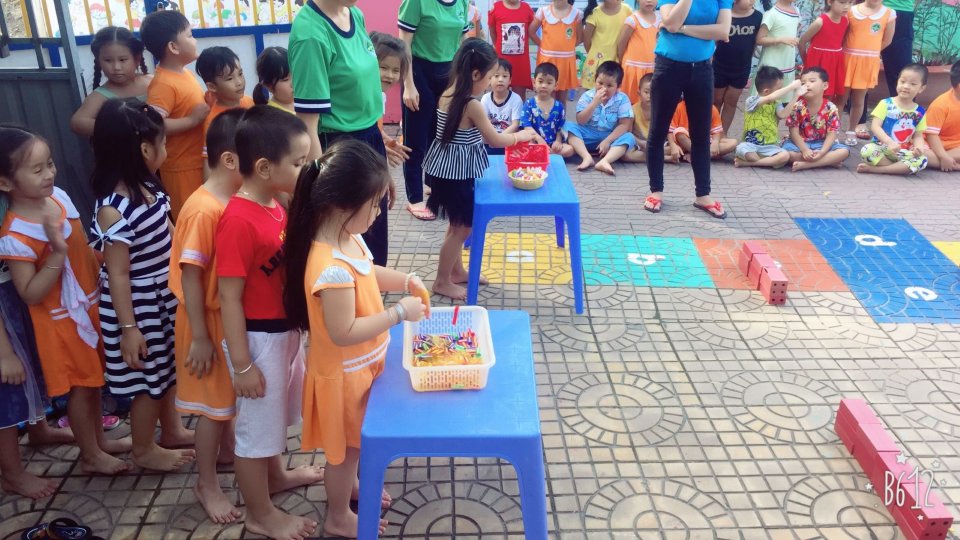06 contents on developing a safe, healthy, and friendly educational environment in Vietnam
This is the notable content in Circular 38/2019/TT-BLDTBXH guiding the development of a safe, healthy, and friendly educational environment; preventing and combating school violence in vocational education institutions issued by the Ministry of Labor, War Invalids and Social Affairs on December 30, 2019.

06 contents on developing a safe, healthy, and friendly educational environment in Vietnam (Illustrative image)
According to Circular 38/2019/TT-BLDTBXH guiding the development of a safe, healthy, and friendly educational environment in vocational education institutions in Vietnam, the following measures should be implemented:
- Ensure security, order; food safety; safety against accidents and injuries; safety against fires and explosions; safety against disasters and natural calamities in vocational education institutions through the following actions:
- Ensure security, order, and internal affairs within vocational education institutions.
- Develop a fire and explosion prevention plan, responsive measures against abnormal weather phenomena, natural disasters (storms, floods, etc.), and epidemic prevention measures according to regulations.
- Ensure food and drinking water safety; prevent food poisoning and food safety incidents in vocational education institutions.
- Guarantee safety for students during both academic and physical education, sports, cultural, and artistic activities; prevent incidents of sexual harassment and abuse against students.
- Coordinate between schools and local authorities to ensure the security and safety of students and vocational education institutions.
- Develop and strictly implement the Code of Conduct in vocational education institutions
- Based on the general code of conduct as set out in Article 4 of Circular 38, vocational education institutions should develop a Code of Conduct suitable to their practical conditions.
- The Code of Conduct at vocational education institutions must be widely consulted with management personnel, educators, workers, and students before issuance.
- The head of the vocational education institution is responsible for ensuring that all management personnel, educators, workers, and students are aware of and comply with the institution's Code of Conduct.
- The Code of Conduct of the vocational education institution must be publicly posted on noticeboards, notice panels, and on the website of the vocational education institution.
- Regular monitoring of the implementation of the Code of Conduct within the institution is necessary. Periodic surveys of management personnel’s, educators', workers', and students' opinions on the implementation of the Code of Conduct should be conducted.
- Establish communication channels within vocational education institutions
- Build and effectively utilize the electronic information portal of the vocational education institution, enhancing information exchange with management personnel, educators, workers, students, and other related individuals concerning behavioral culture.
- Establish a suggestions box and publicize a hotline for receiving reports on a safe, healthy, and friendly environment, and for preventing school violence within the vocational education institution.
- Efficiently and swiftly handle information. Ensure the confidentiality of personal information provided by informants as per legal regulations.
- Organize meetings and information exchanges with students’ families.
- Organize experiential and extracurricular activities for students
- Vocational education institutions should organize experiential, extracurricular, life skills education, charity, community service, cultural, artistic, and athletic activities for students as per existing regulations, in line with the institution’s capabilities and students’ needs.
- The activities mentioned in Point a of this Section must be planned by semester or academic year before conducting.
- The activities mentioned in Point a of this Section must conform to legal regulations, be age-appropriate, considerate of students' psychology, and must not contradict the nation’s customs and traditions.
- Encourage students to participate in experiential, extracurricular, life skills education, charity, community service, cultural, artistic, athletic activities, and activities related to building a safe, healthy, and friendly educational environment, while preventing school violence.
- Implement school healthcare and student support work
- Organize activities for managing, protecting, and taking care of the health of management personnel, educators, workers, and students as per regulations.
- Implement hygiene and disease prevention measures and policies as required by health agencies or superior management authorities
- Organize health education and communication activities for students.
- Ensure conditions for first aid and emergency response, promptly supporting victims of accidents or injuries within the vocational education institution.
- Strengthen information exchange and closely coordinate with functional agencies, local authorities, and community organizations to ensure:
- Security, order, and safety of vocational education institutions.
- The safety of life, body, dignity, honor, and privacy of management personnel, educators, workers, and students.
- Safety for educational activities, cultural and social exchange activities.
For detailed information, refer to Circular 38/2019/TT-BLDTBXH, effective from February 15, 2020.
Thuy Tram
- Number of deputy directors of departments in Vietnam in accordance with Decree 45/2025/ND-CP
- Cases ineligible for pardon in Vietnam in 2025
- Decree 50/2025 amending Decree 151/2017 on the management of public assets in Vietnam
- Circular 07/2025 amending Circular 02/2022 on the Law on Environmental Protection in Vietnam
- Adjustment to the organizational structure of the Ministry of Health of Vietnam: Certain agencies are no longer listed in the organizational structure
- Vietnam aims to welcome 22-23 million international tourists in Vietnam in 2025
-

- Notable new policies of Vietnam effective as of ...
- 16:26, 11/04/2025
-
.Medium.png)
- Notable documents of Vietnam in the previous week ...
- 16:21, 11/04/2025
-
.Medium.png)
- Notable documents of Vietnam in the previous week ...
- 16:11, 02/04/2025
-
.Medium.png)
- Notable new policies of Vietnam to be effective ...
- 16:04, 02/04/2025
-
.Medium.png)
- Notable new policies of Vietnam effective from ...
- 14:51, 21/03/2025
 Article table of contents
Article table of contents
